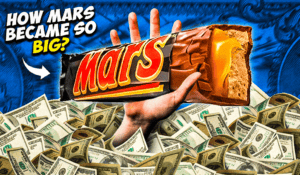Keywords: One-to-One Marketing, Personalization, Customization
In today’s competitive market, most brands are trying to find more effective methods of connecting customers to products. In the search for this, One-to One-Marketing, also known as Personalised Marketing is found as a valid way to build closer relationships with customers. Thus, it will create great customer loyalty and increase Customer Lifetime Value(CLV).
What is One-to-One Marketing?
One-to-one marketing is the execution of a strategy that allows the organization to tailor one or more aspects of its marketing mix to the individual customer.
It is a Customer Relationship Management strategy (CRM) that is centered around personalized interactions with existing or potential customers.
Personalized marketing is an old concept. In the past, the details of each customer’s preferences were kept in mind by general store owners, then they used this knowledge to improve a personalized experience based on what the customer liked. This term was invented and mentioned by Martha Rogers and Don Peppers in their book The One-to-One Future.
What is the goal of One-to-One Marketing?
The goal of individual marketing like all strategies is to increase a financial bottom line by communicating directly to each customer. It has been found that it generates the best return on investment along with enhanced brand loyalty.
Examples of personalized marketing campaigns are custom video messages, targeted emails, product recommendations, individualized coupons, and so on.
Two forms of One-to-One Marketing: Personalization and Customization
Personalization occurs when the company delivers unique customer experiences to the individual, usually based on previously collected customer data. For example, Amazon.com will recommend a series of books or pieces of music to their users according to their research or past purchases.
Personalization demands the accuracy of the data on finding out what customers’ tastes and personal preferences are and customize marketing plans. This is a personal touch.
So here the issue of the personalization is that the company has to take marketing actions according to the predictions they have. How accurate are these predictions? If the mistake is made on personalization like recommending a series of books in which these customers have no interest, It may annoy these customers.
According to the report, 85% of businesses say they provide personalized experiences to consumers but only quite some companies achieve their goal. And also 38% of customers are lost due to wrong personalization efforts. Disney’s Haunted Mansion and the Personalized email mistake by Jack in the box brand can be examples of personalization got wrong.
Customization is when the customers want to make specific one or more changes to the product to meet their needs and wants. One particularly important difference from Personalization is that the customer proactively specifies one or more elements of the product, and lies with who is making these changes.
Customization is considered part of the value proposition that differentiates a firm’s marketing offerings to create a unique customer value. I
n terms of the issue of Customization, it is a cost because the customized products are more costly than the standard ones and Customization makes the purchase decision difficult because of the complexity of making choices.
However, the incremental volume and strategic advantages overcome the cost. Louis Vuitton’selection of gifts for women that allows countless personalization options for single products, “Your style is our style” by Oakley are examples of Customization.
Final Thoughts
Transforming The Mass Marketing approach into Personalized Marketing is a smart move for the company and it can give competitive advantages that outperform its competitors.
In today’s market, customers demand more personalized interactions. They want to make purchases from a brand that understands their specific wants and needs. Thus, having a successful personalized marketing strategy in turn can be the greatest marketing investment for the organization.
Read More Articles







